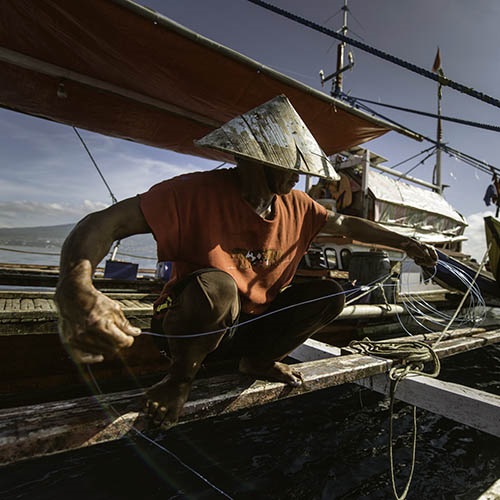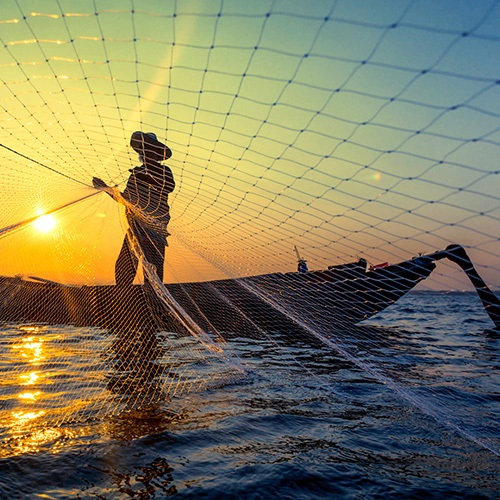Echebastar Fleet and Purse Seine Skipjack Tuna fishery
Amount awarded: £49,980
This project is improving the sustainability of fishing operations that use fish aggregating devices (FADs) in the Indian Ocean.
FADs are man-made objects used to attract open ocean fish such as tuna. A FAD typically consists of floating buoys used to attract predatory fish through the build-up of a mini-marine ecosystem.
The abundance of tuna attracted by FADs can entice other larger predators, such as sharks. As the tuna are harvested from the ocean in nets, unwanted species can become bycatch.
The MSC certified Echebastar fishery targets skipjack tuna in the Indian Ocean. Their project hopes to better understand the impact of FADs on local species and help reduce unwanted impacts.
Silky shark tagging trip
In October 2020, Echebastar's purse seiner Jai Alai left for a 28-day trip around the Seychelles. Aboard the vessel, their research partners AZTI successfully tagged 28 silky sharks with satellite tags. This activity was to monitor bycatch mortality as well as migratory patterns.
The sharks were sexed and blood samples taken. This is so measures of anoxia (lack of oxygen as a result of being out of the water) could be measured. Samples were also taken at different phases of fishing to help identify where and when injuries may occur.
Echebastar employs their own Sustainability Policy and Code of Good Practice (CGP) and have taken measures to reduce the catch of non-target species and promote their post-release survival. A second double conveyor belt on the ship is used to immediately
release entangled silky sharks or those arriving on the fishing deck. Initial findings suggest this significantly helps to reduce post-release mortality.
Echebastar's silky shark tagging research project
Solutions to prevent ghost fishing
Derelict or lost drifting FADs can cause issues for vulnerable marine ecosystems (VMEs) like coral reefs. They can lead to ghost fishing, pollution and the loss of expensive fishing gear. This is because drifting FADs are not anchored to the seabed and can end up beaching as a result of regional ocean currents moving them.
The project is supporting the FAD Watch initiative, set up in the Seychelles, to intercept lost FADs. The project is investigating what damage derelict FADs do to corals and secondly, whether the FAD Watch initiative is effective in addressing these issues.
AZTI and the fishery are also researching the design and construction of biodegradable FADs.
The Ocean Stewardship Fund project is set to be completed by 2022, with the information used to support identification of potential new management measures. Their findings could help accelerate the sustainability and certification of other IOTC (Indian Ocean Tuna Commission) fisheries.
“The funding is recognition of the contribution of the Echebastar work programme strengthening the sustainability credentials of the whole Indian Ocean purse sein tuna fishery. The funding will enable a more rigorous approach to addressing several important issues while providing a basis to identify where additional work may be required.”
Pesqueras Echebastar S.A.
Find out more

Our impact projects
Discover projects supported through the Ocean Stewardship Fund that are helping to grow sustainable fishing worldwide.

The Ocean Stewardship Fund
The Ocean Stewardship Fund offers grants to both MSC certified sustainable fisheries and improving fisheries.
